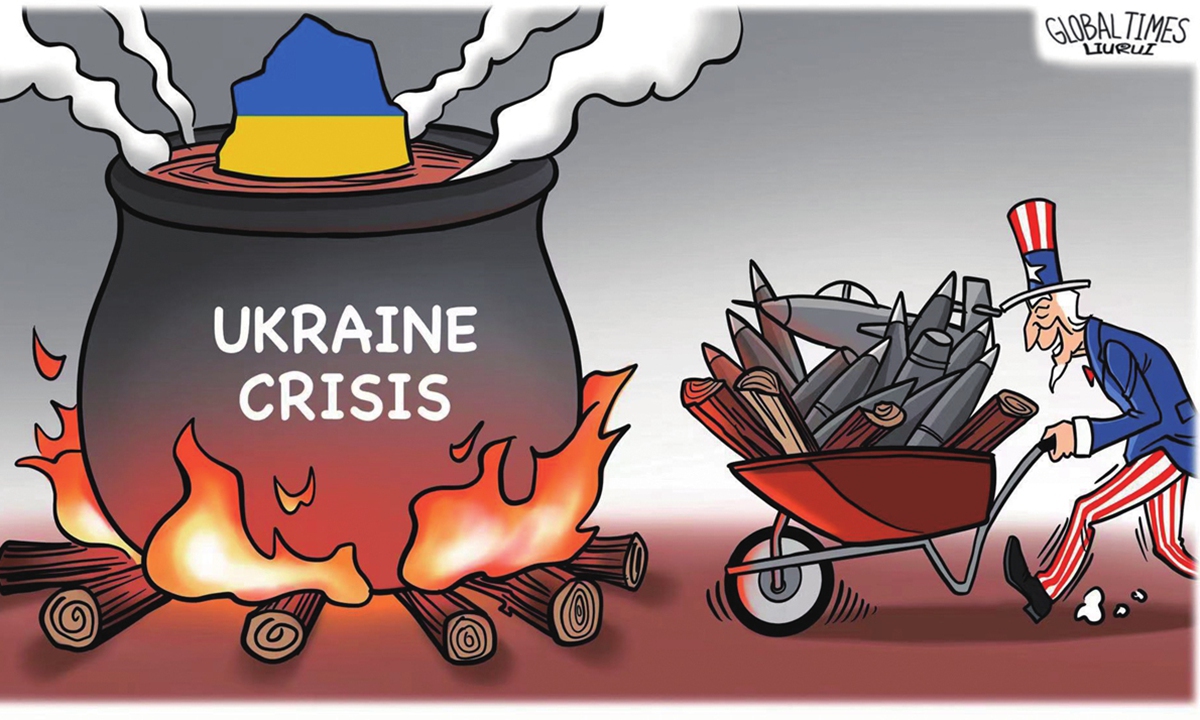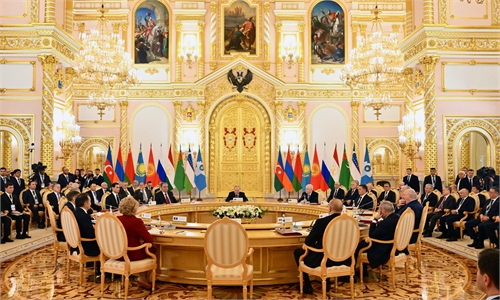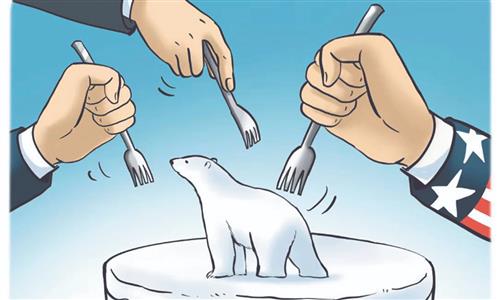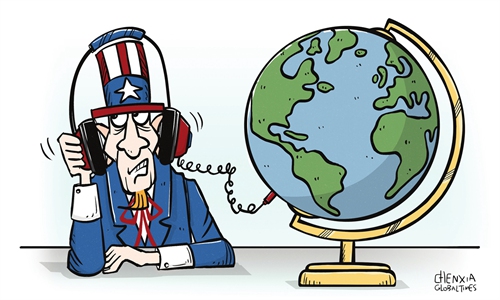
Illustration: Liu Rui/GT
Ambassadors from countries in the NATO-Ukraine Council held a meeting on Tuesday to discuss the security situation in Ukraine following Russia's recent launch of an experimental intermediate-range hypersonic missile. During the meeting, NATO allies reaffirmed support for Ukraine, but the talks didn't yield any significant results. The current "weapon escalation" underscores the spiraling strategic contest between the US and Russia in Ukraine, highlighting the determination of all sides to avoid defeat.
Since the outbreak of the Russia-Ukraine conflict, the US has been cautious in providing advanced weaponry to Ukraine. However, despite initial hesitation, after the US presidential election, the Joe Biden administration reversed its stance, suddenly giving the green light for Ukraine to use long-range weapons provided by the US against Russian targets. Consequently, it is reported that Kiev has already launched consecutive strikes on key Russian military sites with US weapons.
Washington's lift on weapon use restrictions has exacerbated risks of escalating tensions and battles on the Russia-Ukraine front lines, particularly in the Kursk region. Besides, Biden's decision intensified pressure on strategic stability between the US and Russia. This move triggered a series of strong reactions from Russia, quickly heightening an anxious sentiment over the possibility of a significantly increasing conflict.
After Washington's decision, Russian President Vladimir Putin lowered the threshold for Russia's use of its nuclear weapons, allowing for a potential nuclear response by Moscow even to a conventional attack on Russia by any nation that is supported by a nuclear power. As a result, Russia hit Ukraine with a new ballistic missile on November 21, triggering uproar and concern among European countries.
Furthermore, the Biden administration's decision has deepened the divisions in US politics at home. It is well known that the Democratic Party and Republican Party have long had serious disagreements on the Ukraine issue. The impending arrival of a new administration has undoubtedly heightened concerns among Democrats about the potential abandonment of European and Ukrainian interests. The Biden administration's decision, therefore, is clearly aimed at protecting its diplomatic legacy, attempting to influence the next US administration's policy toward Russia as much as possible and preventing any significant compromises with Russia from happening.
Furthermore, such a sudden shift of policy may continue to create cracks between the US and Europe and within the European Union (EU). By loosening restrictions on military aid to Ukraine during the transition period before leaving office, the Biden administration hopes to maximize the influence of its neoliberal diplomacy and encourage Europe to continue adhering to current policies toward Russia. Therefore, its risky interventions that break the security taboos of great power competition are intended to force Europe to embrace its security alliance with the US more and ensure that it remains uncompromising on the Ukraine issue.
However, EU members have serious differences in their positions on the Biden administration's recent decision. According to BBC, Ukraine has fired UK-supplied Storm Shadow missiles at targets inside Russia for the first time last week, raising discussions on whether it is a signal that the UK is lifting the restrictions on the use of the weapons. French President Emmanuel Macron applauded Washington's decision, but it is still not confirmed by Paris if French weapons have already been used outside Ukrainian borders.
On the other hand, Germany said that it will maintain its stance of not supplying Ukraine with long-range missiles, while Italy reaffirmed that Italian-supplied weapons to Ukraine should not be used outside Ukrainian borders. Hungarian Foreign Minister Peter Szijjarto criticized US decision for being "extremely dangerous" and warned that it could escalate the conflict to a global scale. It is expected that the unity between the US and Europe and within the EU on the issue of Ukraine aid will take a further hit.
The author is a research fellow at the Institute of Russian, Eastern European and Central Asian Studies of the Chinese Academy of Social Sciences. opinion@globaltime.com.cn



